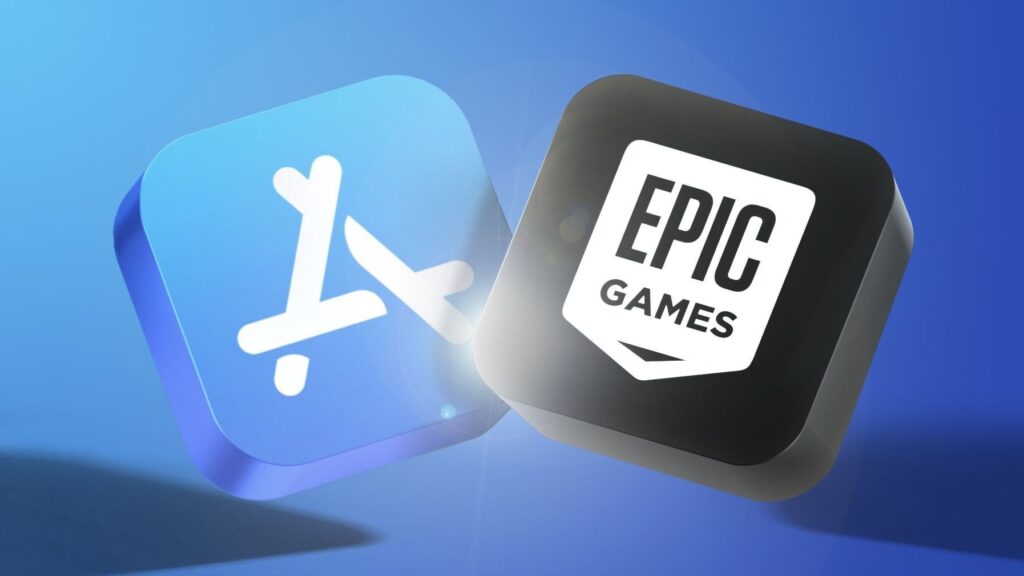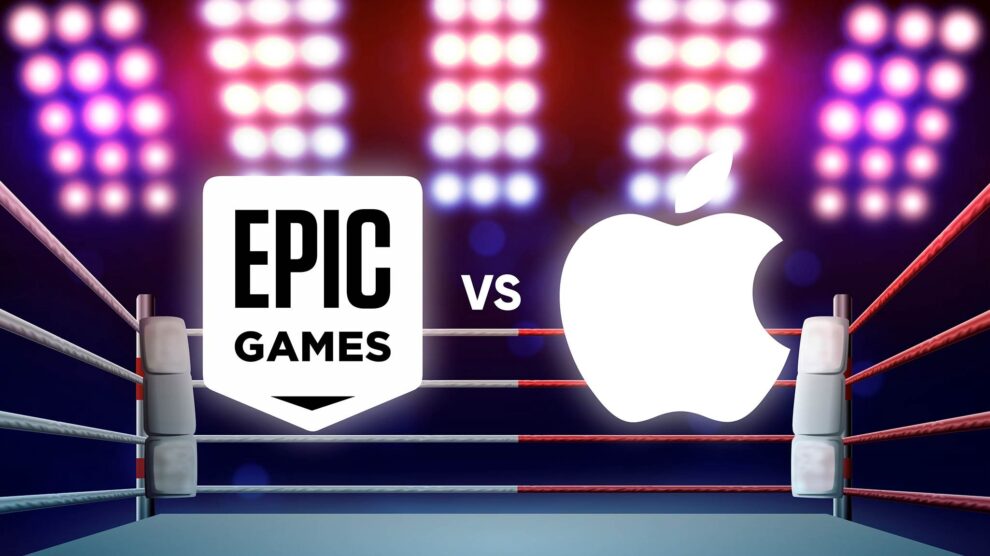
Epic’s Frustrated Attempts to Enter the iOS Ecosystem
According to Epic Games, their efforts to bring the Epic Games Store to iPhones and iPads in the EU have been met with significant resistance from Apple:
- Epic claims that Apple has rejected their app submission twice.
- These rejections come despite new EU regulations mandating that Apple allow alternative app stores on iOS devices.
- Epic’s frustration is palpable, as they view these rejections as unjustified and potentially in violation of EU law.
Apple’s Reasoning: A Matter of Design Similarity?
The core of Apple’s rejection, according to Epic, centers around design elements within the Epic Games Store app:
- Apple allegedly claims that certain buttons in Epic’s app too closely resemble those in Apple’s own App Store.
- Specifically, the “Get” and “In-app purchases” buttons have been flagged as problematic due to their similarity to Apple’s designs.
- This focus on design details has raised eyebrows, given the broader context of app store competition and EU regulations.
Epic’s Counter-Argument
Epic Games strongly contests Apple’s reasoning for the rejections:
- They argue that terms like “Get” and “In-app purchases” are standard across various app stores and not unique to Apple.
- Epic claims their designs simply follow established iOS app conventions, which are natural for users of the platform.
- The company views Apple’s rejections as an unjustified barrier to entry, potentially violating the spirit and letter of the EU’s Digital Markets Act (DMA).
The Digital Markets Act: A Game-Changer for App Stores
Central to this dispute is the EU’s Digital Markets Act (DMA), which aims to foster competition in digital markets:
- The DMA mandates that large tech platforms, including Apple, must allow alternative app stores on their devices.
- This regulation is designed to break the monopoly of single app stores on mobile platforms and give consumers more choice.
- Epic sees Apple’s actions as a potential violation of this new regulatory framework.
Epic’s Response and Next Steps
Faced with these obstacles, Epic Games is not backing down:
- The company has filed a formal complaint with the European Commission regarding Apple’s actions.
- Despite the setbacks, Epic remains optimistic about launching both the Epic Games Store and Fortnite on iOS devices in the EU.
- They hope to achieve this launch within the next few months, assuming no further obstacles from Apple.
The Broader Implications
This dispute between Epic and Apple has wider ramifications for the tech industry:
1. Testing the Strength of EU Regulations
- The outcome of this conflict will be a significant test case for the effectiveness of the DMA.
- It will demonstrate how much power EU regulators have in enforcing competition in digital markets.
2. Shaping the Future of App Distribution
- The resolution of this dispute could set precedents for how alternative app stores operate on iOS and potentially other platforms.
- It may influence how other companies approach launching competing app stores on mobile platforms.
3. Impact on Developer-Platform Holder Relationships
- This case highlights the ongoing tensions between app developers and platform holders.
- The outcome could influence how platform holders interact with and accommodate third-party developers and stores.
4. Consumer Choice and Experience
- If Epic succeeds, it could lead to more choices for iOS users in how they download and purchase apps.
- However, it also raises questions about maintaining a consistent user experience and security standards across multiple app stores.
The Road Ahead
As this situation unfolds, several key points will be worth watching:
- European Commission’s Response: How quickly and decisively will the EC act on Epic’s complaint?
- Apple’s Strategy: Will Apple modify its stance or continue to resist alternative app stores on iOS?
- Potential Compromises: Could there be a middle ground that satisfies both Epic’s desire for market entry and Apple’s concerns about user experience and platform integrity?
- Industry Reactions: How will other app developers and potential app store operators respond to this conflict?
Conclusion: A Pivotal Moment in Digital Market Regulation
The clash between Epic Games and Apple over the launch of the Epic Games Store on iOS in the EU represents more than just a dispute between two companies. It is a pivotal moment in the implementation of new digital market regulations and could shape the future of app distribution on mobile platforms.
As the European Commission considers Epic’s complaint and Apple potentially refines its approach to comply with the DMA, the tech industry and consumers alike will be watching closely. The outcome of this dispute could have far-reaching implications for how we access and use apps on our mobile devices, particularly in the European Union.
While the immediate focus is on Epic’s ability to launch its store and bring Fortnite back to iOS devices in the EU, the broader implications for competition, innovation, and user choice in the digital marketplace are profound. As this situation continues to evolve, it will undoubtedly play a significant role in shaping the future of mobile computing and digital marketplaces.










Add Comment